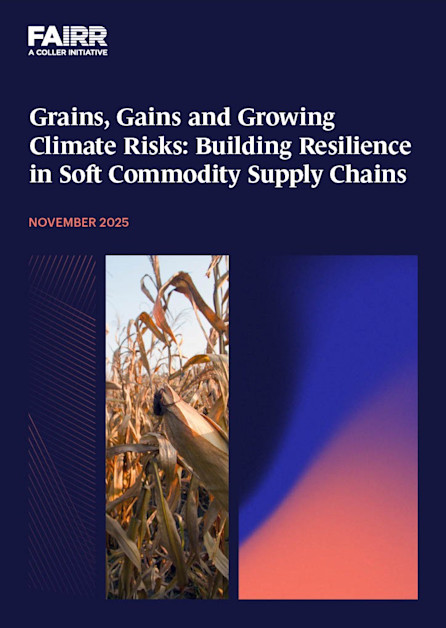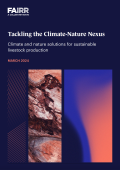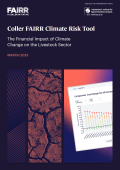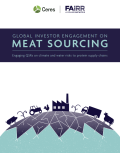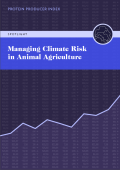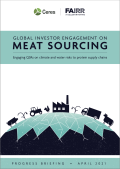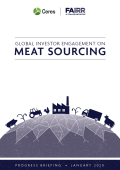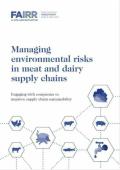Overview
This report examines how growing climate and nature risks are reshaping global soft commodity markets—particularly corn, soy and wheat—and how these shifts are affecting the resilience and profitability of livestock supply chains.
Drawing on data from the Coller FAIRR Climate Risk Tool (CRT), the Coller FAIRR Protein Producer Index, and Bloomberg, the report underscores how climate-driven feed disruptions translate into financial losses, operational risks, and long-term value implications for the world’s largest listed protein producers, and their investors.
Feed is one of the most climate-sensitive cost components in livestock production. Under the CRT’s high-impact scenario, average feed costs could rise by more than 30% by 2050, with poultry and pork producers facing the greatest pressure on profit margins. FAIRR’s analysis highlights systemic vulnerabilities – including supplier and geographic concentration, low traceability, and uneven disclosure of feed-related and water risks – that constrain corporate risk management and investor oversight.
Beyond risks, the report outlines emerging solutions: from alternative feed ingredients and precision irrigation to drought-tolerant crop varieties and enabling policy frameworks. Together, these findings offer a roadmap for investors and companies seeking to future-proof protein supply chains.
The findings of this report can help investors to:
quantify and compare exposure to feed-related climate and nature risks across listed protein producers;
identify companies that are integrating climate and nature resilience into their business models;
strengthen stewardship and engagement, using the suggested questions;
inform capital allocation decisions, linking companies’ adaptation performance to long-term value creation; and
understand the evolving policy and trade dynamics that shape feed costs, traceability requirements and market access; and
encourage companies to build more resilient supply chains by undertaking climate scenario analysis, diversifying sourcing portfolios, and exploring alternative feed ingredients.
Key highlights
Key findings from this report:
Only 18 of 40 major livestock companies disclose feed supplier information, exposing major traceability gaps.
More than half (11) of these 18 companies rely on 1 to 2 suppliers per crop, creating high exposure to weather and logistics disruptions.
Only 10 of 40 livestock companies have quantified the financial impact of climate risks on their operations.
Less than half of producers disclose whether they conduct climate scenario analysis; only 17 have completed such assessments as of 2024.
Written by

Senior Analyst, Climate & Nature


